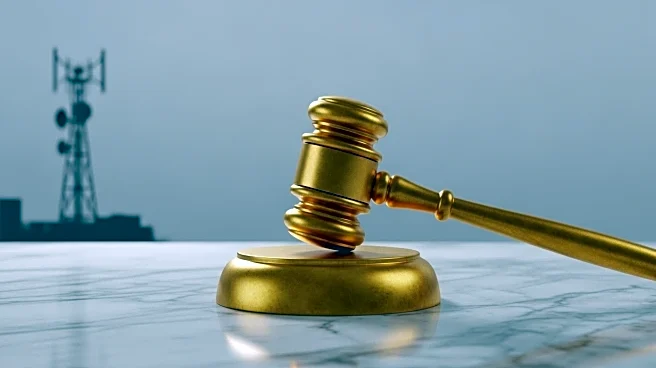What's Happening?
Senate Majority Leader John Thune has expressed concerns over the Federal Communications Commission's (FCC) use of its regulatory power, particularly in relation to the First Amendment. During an interview with CNN's Dana Bash, Thune commented on the actions of FCC Chairman Brendan Carr and President Trump regarding late-night host Jimmy Kimmel. Thune suggested that the FCC should not employ its authority in a coercive manner that could potentially infringe on free speech rights. This statement comes amid broader discussions about the FCC's role in media regulation and its influence on broadcasters.
Why It's Important?
The remarks by Senate Majority Leader Thune highlight ongoing debates about the balance between regulatory oversight and free speech in the United States. The FCC's actions, particularly those perceived as politically motivated, could have significant implications for media freedom and the independence of broadcasters. If the FCC is seen as overstepping its bounds, it could lead to increased scrutiny and calls for reform. This situation underscores the importance of maintaining a regulatory framework that protects free speech while ensuring fair media practices.
What's Next?
The discussion around the FCC's regulatory practices may prompt further examination by lawmakers and media watchdogs. Potential legislative or policy changes could be considered to address concerns about the agency's influence on media operations. Stakeholders, including media companies and civil rights organizations, may advocate for clearer guidelines to prevent perceived coercive actions by the FCC. The outcome of these discussions could shape the future of media regulation in the U.S.
Beyond the Headlines
The controversy surrounding the FCC's actions raises questions about the ethical responsibilities of regulatory bodies in maintaining impartiality and fairness. It also highlights the cultural tensions between government oversight and media freedom, which are central to democratic societies. Long-term, this debate could influence public trust in both media institutions and regulatory agencies.











